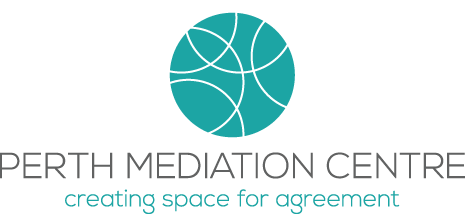Resolving Disputes

Perth Mediation Centre can assist with resolving many types of disputes. People will never be pushed one way or the other, these decisions are made by the people involved in them, Perth Mediation Centre provides a safe place and a structured process for discussion.
When people bring important conversations to Perth Mediation Centre we take our role very seriously. Every care will be taken to design an approach that will support your decision making. We understand that people might see no way of resolving things without going to court and sometimes mediation might be a last attempt at finding agreement before the court process starts. Other times the cost of court might be too much of a hurdle and mediation is the only known option to reach a way forward.
Whatever is going on we will work with you to identify what conversations need to happen, what options there are to resolve issues and what can be agreed to move forward.
We understand that people who are in dispute often don't see a way through and may be reluctant to talk about the issues.
First Step...
Every mediation starts with a confidential meeting with every participant. Participants in mediations will never be brought together before a private meeting has been attended. These meeting help us to understand the nature of a dispute and the sorts of conversations that participants may need to have. It helps us to prepare for the first time you will all come together and to decide on how that will happen.
At the First Meeting of Participants...
Perth Mediation Centre has been established to provide a safe place for difficult conversations.There are separate rooms and mediations can happen without people ever seeing each other. This is called shuttle mediation and your mediator will explain it to you if needed. The private rooms might also be used to provide a quiet space to talk things over or make a phone call. We take your privacy very seriously.
In the main mediation room participants will be asked to talk about what has brought them to mediation and what they hope to achieve. Mediators will then assist with creating an agenda. When this is agreed (and it is always open for things to be added) these issues will be explored so that everyone gets an opportunity to say what is important about them.
This might be the first time that people have spoken about issues in this way and the mediator will assist the process by asking questions to clarify what is being said. Participants will have a chance to say what is concerning them and to hear the concerns of others.
With this understanding participants can then move to suggesting options for what needs to change or be done in the future. More options will often lead to better decisions so your mediator may push a bit here to help get a few more options on the table.
With options explained and understood participants will work through them and determine if there is an option that will be given more thought, accepted as a trail or decided as what is going to happen. This is called the negotiation phase.
Future Meetings...
Sometimes one joint meeting is all that is required but often there is more to talk about than can fit in one session. Participants might need time to think about options or to get advice about how it will work for them so another meeting will be arranged. Sometimes the time between meetings will be used to trial new ways of doing things.
Every meeting will start with a recap on what participants hope to achieve and the process will continue with as many meetings as are required to make the decisions that participants are comfortable agreeing to.
When agreements are reached mediators will assist in writing them. If agreements are to be subject to a legal process participants will talk about how this will be arranged.
If agreement can't be reached on all points of difference, mediation can help to negotiate what can be done about that too.
